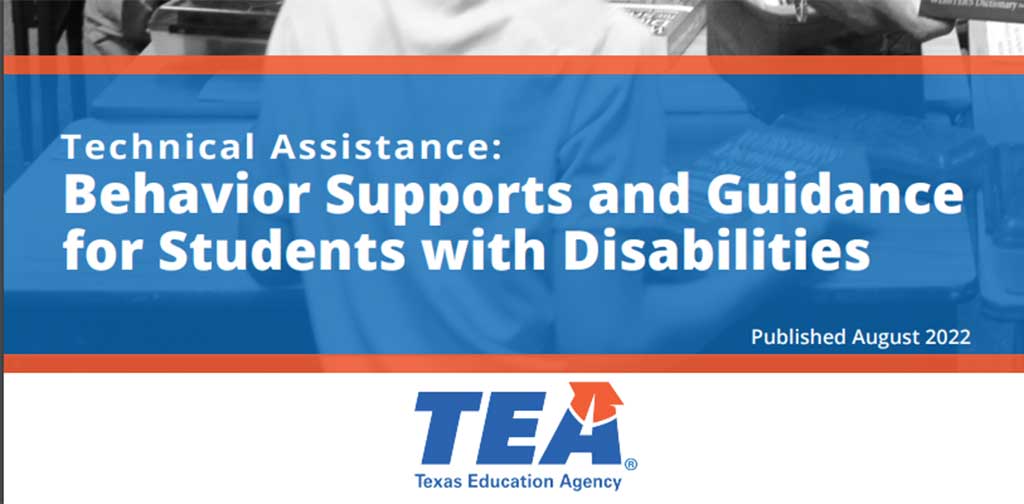Schools are to give parents the Texas Education Agency (TEA) document Notice of Procedural Safeguards Rights of Parents of Students with Disabilities at least once a year. It is also to be given when an initial evaluation for special education services is begun or when a parent requests an evaluation, when the first state complaint or due process hearing complaint is made in a school year, and whenever a parent requests a copy. There are common mistakes that many parents make in regards to this document and their rights.
1. Not reviewing the document and keeping it where it can be easily found.
The document can seem boring, dull, unimportant and/or hard to understand for many parents. However, it contains important information about how the special education process is to work and the parents’ rights during the process. It and other documents should be reviewed when questions, concerns or issues arise.
2. Not using other documents to understand the special education process and your procedural rights.
The Safeguards document has important information, but does not have a table of content. It is strongly recommended that parents obtain a copy of A Guide to the Admission, Review and Dismissal Process (the school is to give you a copy, it is also at: http://framework.esc18.net/display/Webforms/LandingPage.aspx) and IDEA, The Manual for Parents and Students about Special Education Services in Texas, 2012 (see: http://www.thearcoftexas.org/). It is recommended that one or both of these documents be read before the Safeguards document is read in detail. While the IDEA Manual is longer, it is an excellent document. It includes useful information (form letters, forms, list of resources) and more detail than the ARD Guide document.
3. Not understanding how broad the definition of parent is.
Students with disabilities frequently live with people other than their biological parents. At times schools will say that a person cannot act as the parent. Regulations say “parent” also includes adoptive and foster parents, a guardian, an individual acting in the place of a biological or adoptive parent (including a grandparent, stepparent, or other relative) with whom the child lives, an individual who is legally responsible for the child’s welfare, or a surrogate parent.
4. Not understanding the concept and requirements of prior written notice.
Parents are to be given written information/notification five days prior to when the school proposes or refuses to initiate or change the identification, evaluation, or educational placement of their child or the free appropriate public education (FAPE) provided their child. The purpose of the notice is to provide them with information to help them participate in the decision-making process regarding their child.
The notice must “describe the actions the school proposes or refuses to take; explain why the school is proposing or refusing the action; describe each evaluation procedure, assessment, record, or report the school used in deciding to propose or refuse the action; include a statement that you have protections under the procedural safeguards of the IDEA; tell you how to get a copy of this Notice of Procedural Safeguards; include contact information for individuals or organizations that can help you in understanding the IDEA; describe other choices that your child’s Admission, Review and Dismissal (ARD) committee considered and the reasons why those choices were rejected; and provide a description of other reasons why the school proposes or refuses the action.” TEA guidance on this is at: http://www.tea.state.tx.us/index2.aspx?id=2147498965
4. Not obtaining a refusal of action by the school or ARD/IEP team in written form.
Even when a school has strong reasons for refusing a parent’s requests, it is not easy for them to clearly state these in writing. Often schools do not give parents a specific form addressing the refusal. Generally, if questioned they will say the required items are included in the ARD/IEP minutes and document. It is not easy to cover the required items in the minutes. Many school attorneys tell schools that the minutes/document can be part of the refusal notice, but it is best to have another form that covers what is not in that document. Whatever format the school uses, it is important to be sure all requirements listed in #3 are covered completely and in clearly understandable language.
5. Not using their right to obtain an independent educational evaluation (IEE).
An IEP should be based on the child/s present level of academic achievement and functional performance (PLAAFP) which should come from some appropriate testing or type of measurement. Sometimes parents feel that the PLAAFP is not accurate, because the testing or other type of measurement is not accurate or current enough. An IEE is the procedural safeguard that assists parents when they disagree with the school’s evaluation(s). This is a request for the school to pay for testing in one or more areas to be considered in developing the PLAAFP and IEP.
6. Not knowing that the school must provide an interpreter at ARD/IEP meetings for parents who use a language other than English or are deaf or hard of hearing.
In addition to an interpreter at the meeting, notices and consent forms must be in your native language or other mode of communication, unless this is clearly not possible. Parents must be given the ARD/IEP document. If Spanish is your native language and you are unable to speak English, the school must provide you with the IEP in Spanish (either written or audio taped). If your native language is not Spanish and you cannot speak English, the school must make a good faith effort to provide you with a translation of the IEP in your native language. Often parents must request these things.
7. Lack of knowledge of state law/rules on confinement, restraint and time-out.
Federal regulations do not address these areas, but Texas laws and regulations do. Parents should monitor if any of these techniques are being used with their child. If they are being used, study the rules that the schools must follow, ask questions about staff training and for the documentation they are required to provide parents when they are used.
8. Not understanding the state mediation and special education complaint resolution process.
One or both of these processes can benefit parents if they understand them, properly prepare and present their case and documentation. Detailed information on these is in the Safeguards and other two documents mentioned above and on the TEA special education website, http://ritter.tea.state.tx.us/special.ed/medcom/.
9. Not using the sources listed to answer questions on the Safeguards documents or to have someone explain it to you.
These are listed on the last page of the document. If you need to go beyond the school district, a second (Education Service Center) and third source are listed. The third source should be Partners Resource Network or its Project (PATH, PEN, TEAM) that serves your area of the state.
10. Not understanding the regulations on access to educational records by parents and others.
Extensive information on this topic can be found on pages 7-9 of the Procedural Safeguards document. You should also obtain the fact sheet on the Family Educational Rights and Privacy Act (FERPA) from your Regional Coordinator. This federal law sets the basic rights that parents have and the requirements that schools must follow regarding records.



